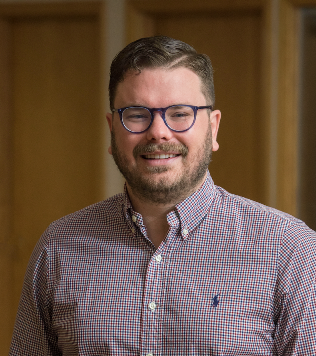Racism Doesn’t End at Raceway Road

Guest Blog by IPA member Eric Hessel, Vice President of Programs, Hendricks County Community Foundation
Launching our community needs assessment in 2019, we knew we had a challenge ahead of us to engage communities of color. Hendricks County is 16% nonwhite, even though many of the rooms we’re in don’t reflect that diversity. To be honest, when quoting that number, you see shock on people’s faces. So, as we pushed our survey, the number of nonwhite respondents continued to lag far behind the Census data. Reaching out to organizations across our county for help, we received the same response, “We struggle with that too!” Our team even hand-delivered surveys across the eastside of our county along Raceway Road: the border with Marion County and undoubtedly the most diverse in our community. Despite the level of confidence for our survey (99% +/- 2%), it still missed the mark on responses from people of color.
Throughout the community engagement process there were discussions around diversity and inclusivity: one-on-one meetings with community leaders, focus groups, community conversations, and our Community Unity Task Force which put together our Implementation Grant proposal. Our final proposal even included hiring a D&I consultant to help our community build pathways to engagement with our communities of color.
2020 has been the year to prove whether our community foundation institutionalized the concepts of community leadership: understanding the needs and working with our community to meet them.
Throughout the process, we reminded our Board that community leadership wasn’t just a one-off thing but rather a culture shift in how HCCF serves our community. As our community dealt with COVID in March and the killing of George Floyd in May, we quickly learned that they “got it”, not just when Lilly Endowment was funding the work but when our community needed us.
Our CEO and Board President drafted, signed and shared our response to the killing. We were among a small handful that did so in our community. I will admit that there were some moments of fear, but we reminded ourselves that this was the right thing, and that was enough to stand on. We immediately followed with a $1,500 grant to the Hendricks County Alliance for Diversity to support their conversations on race and anti-racism. That included a White Fragility book club in which our 5 team members all participated. Finally, we used unrestricted funds to hire the D&I consultant for a short-term contract to begin the work built into our Implementation Grant. There wasn’t time to wait.
The consultant started by hosting a Conversation on Racial Injustice and the Protests (attended by 50 community leaders); Unconscious Bias Training for our Board and Staff; a second training for 30 community leaders including elected/appointed officials, school superintendents (on the first day of school nonetheless), law enforcement, nonprofit leaders and community volunteers; and we are currently scheduling additional community conversations and planning over the next month. All this while building out our internal work on what this all means for us as a foundation. This includes a task force to work on Board/staff education and internal review—modeling plans from our friends at CICF and Heritage Fund.
Our community is hungry for leadership in this space. I’ve often described it as, “We’re not trying to catch up, but we’re definitely trying to keep up,”—balancing the hard work that needs to be done at HCCF with the need for action in our community. We’re skilling up, reading up, networking and fundraising. Some has been easy, but there have also been roadblocks.
Many people don’t see this issue as a suburban or rural one, but one that is solved in our most diverse cities. We’re making the case that we can’t fight racial injustice and systemic racism only in cities. It will require regional partnerships reaching out to a broader range of folks.
Ben Winchester said it best at Rural Resiliency and the New Narrative, “Your community is not in the middle of nowhere; it’s in the middle of everywhere.” One third of our workforce travels out of the county, often to Indianapolis; and one third of our workforce travels from outside to Hendricks County. Nothing better summarizes how racism affects our communities. This is not a “them” problem, an Indianapolis, Fort Wayne, Evansville or East Chicago problem; it’s an “all of us problem”, and we all have a responsibility to stand up for the right thing, even when it’s hard. No matter your community—racism doesn’t stop at Raceway Road.
